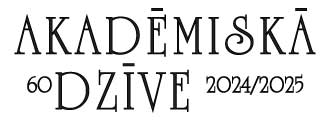From migration to integration: new residents in rural Latvia
DOI:
https://doi.org/10.22364/adz.60.14Keywords:
newcomers, rural areas, integration, sense of belongingAbstract
While rural development and its potential have become topical issues in Latvia over the past decade, there is a lack of research focused on in-depth study of newcomer integration in rural areas. Therefore, the aim of this study is to investigate the migration and integration processes of newcomers in rural Latvia, as well as the factors that facilitate or hinder their integration into the rural environment and community. To achieve this goal, an empirical study was conducted based on interviews with rural newcomers and secondary data analysis. The results reveal that the integration of newcomers into rural Latvia is a complex process influenced by a multitude of factors. Rural integration encompasses several dimensions, including home, work, social spaces, events, and broader community involvement. Although many newcomers have reported feeling accepted by the local community, others have faced significant challenges in the integration process, often due to unwelcoming attitudes. Given the situation in rural Latvia, particularly in border regions where newcomers are key to revitalizing rural areas, it is essential to plan for state-level support.
References
Allen, K. A.; Kern, M. L.; Rozek, C. S.; McInerney, D. M.; Slavich, G. M. (2021) Belonging: a review of con-ceptual issues, an integrative framework and directions for future research. Australian Journal of Psychology, 73 (1), 87–102. https://doi.org/10.1080/00049530.2021.1883409.
Bosswick, W.; Heckman, F. (2006) Integration of Immigrants: Contribution of local and regional autho-rities. Dublin: Eurofund. https://www.eurofound.europa.eu/en/publications/2007/integration-migrants-contribution-local-and-regional-authorities (skatīts 16.08.2024.).
Birka, I. (2014) Integration and sense of belonging – case study Latvia. Doctoral thesis. Riga: University of Latvia Faculty of the Social Sciences. https://eszf.lu.lv/fileadmin/user_upload/szf_faili/Petnieciba/Birka_Ieva_2014.pdf.
Caldwell, W.; Arora, P.; Labute, B.; D’Souza Rea, N.; Khan, B. (2017) Attracting and retaining newcomers in rural communities and small towns. University of Guelph. https://www.waynecaldwell.ca/wp-content/uploads/2020/12/AttractingandRetainingNewcomers.pdf.
Cimdiņa, A. (2011) Lauku dzīves racionalitāte un kultūrsociālā iesakņotība. Akadēmiskā Dzīve, 48, 35–45. https://www.lu.lv/fileadmin/user_upload/lu_portal/adz/arhivs/48/48.pdf.
Conti, M.; Sivini, S. (2023) Small municipalities attracting rural newcomers and fostering local cohesion: Innovative approaches for rural regeneration in Italy. Sustainability, 5, 5837. https://doi.org/10.3390/su15075837.
Dahs, A.; Krumins, J.; Berzins, A.; Lece, K. (2023) Demographic Challenges of Rural Areas in Latvia: Reflections of the Covid-19 Pandemic. Proceedings of the 2023 International Conference “Economic Science for Rural Development”, 57, 357–266. https://doi.org/10.22616/ESRD.2023.57.035.
Dopitova, M. (2016) Social Engagement and Rural Newcomers. Socialni Studia, 2, 73–91. https://doi.org/10.5817/SOC2016-2-73.
Dzenovska, D. (2011) “Dānis” Latvijas laukos: mīti un pēcpadomju agrārā kapitālisma kritika. Akadēmis-kā Dzīve, 48, 3–15. https://www.lu.lv/fileadmin/user_upload/lu_portal/adz/arhivs/48/48.pdf.
Eiropas Komisija (2021) Ilgtermiņa redzējums par ES lauku apvidiem: kāds ceļš ejams, lai līdz 2040. gadam lauku apvidi kļūtu spēcīgāki, savienoti, izturētspējīgi un pārtikuši. https://eur-lex.europa.eu/resource.html?uri=cellar:6c924246-da52-11eb-895a-01aa75ed71a1.0014.02/DOC_1&format=PDF (skatīts 01.08.2024.).
Esser, H. (2006) Migration, Language and Integration, AKI Research Review, 4. https://bibliothek.wzb.eu/pdf/2006/iv06-akibilanz4b.pdf (skatīts 01.08.2024.).
Esses, V. M.; Hamilton, L. K.; Bennett-AbuAyyashi, C.; Burstein, M. (2010) Characteristics of a welco-ming community. http://p2pcanada.ca/wp-content/uploads/2011/09/Characteristics-of-a-Welcoming-Community-11.pdf (skatīts 30.03.2023.).
Geddes, A. (2001) Ethnic Minorities in the Labour Market: Comparative Policy Approaches (Western Europe). Report commissioned by the Ethnic Minorities Labour Market Project of the Performance and Innovation Unit. London: Cabbinet Office. https://webarchive.nationalarchives.gov.uk/ukgwa/+/http://www.cabinetoffice.gov.uk/media/cabinetoffice/strategy/assets/geddes.pdf (skatīts 01.08.2024.).
Haartsen, T.; Stockdale, A. (2017) Selective belonging: how rural newcomer families with children beco-me stayers. XXVII European Society of Rural Sociology Congress Proceedings. https://onlinelibrary.wiley.com/doi/full/10.1002/psp.2137 (skatīts 01.08.2024.).
Hedetoft, U. (2002) Discourses and Images of Belonging. Migrants between “New Racism”, Liberal Na-tionalism and Globalization. AMID Working Paper Series, 5/2002. AMID, Institut for Historie, Internati-onale Studier og Samfundsforhold, Aalborg Universitet. https://vbn.aau.dk/ws/portalfiles/portal/33969996/05_Ulf_Hedetoft.pdf (skatīts 01.08.2024.).
Kalter, F. (2022) Integration in migration societies. Handbook of Sociological Science. Cheltenham, UK: Edward Elgar Publishing, 135–153. https://doi.org/10.4337/9781789909432.00016.
Kolčanovs, B. (2010) Ievads kultūru dažādībā. Kolčanovs, B.; Zankovska-Odiņa, S.; Zālītis, K. (red.) Atšķi-rīgs klients daudzveidīgā Latvijā. Rīga: Latvijas Cilvēktiesību centrs, 3–26. https://cilvektiesibas.org.lv/lv/publications/atskirigs-klients-daudzveidiga-latvija/ (skatīts 01.08.2024.).
Krisjane, Z.; Berzins, M.; Krumins, J.; Apsite-Berina, E.; Balode, S. (2023) Uneven geographies: ageing and population dynamics in Latvia. Regional Science Policy and Practice, 15 (4), 893–908. https://doi.org/10.1111/rsp3.12648.
Kruzmetra, Z.; Bite, D. (2023) Newcomers in Latvian countryside: economic and social potential. The 15th International Scientific Conference “New Challenges in Economic and Business Development – 2023: Responsible Growth”: proceedings, Riga, Latvia, May 11–13, 2023. Riga: University of Latvia, Faculty of Business, Management and Economics, 83–87. https://dspace.rsu.lv/jspui/bitstream/123456789/15131/1/Newcomers_in_Latvian_countryside.pdf.
Lockwood, D. (1964) Social integration and system integration. Zollschan, K.; Hirsch, W. (eds) Explora-tions in Social Change. London: Routledge and Kegan.
Mailfert, K. (2007) New farmers and networks: how beginning farmers build social connections in Fran-ce. Tijdschrift Voor Economische En Sociale Geografie, 98 (1), 21–31. https://doi.org/10.1111/j.1467-9663.2007.00373.x.
Monllor i Rico, N.; Fuller, A. M. (2016) Newcomers to farming: towards a new rurality in Europe. Docu-ments d`Anàlisi Geogràfica, 62, 531–551. https://doi.org/10.5565/rev/dag.376.
Raubiško, I. (2011) Kas ir “labbūtība”, un kāpēc “labbūtība”? Ieskats labas dzīves izpratnē Latvijas laukos. Akadēmiskā Dzīve, 48, 25–34. https://www.lu.lv/fileadmin/user_upload/lu_portal/adz/arhivs/48/48.pdf.
Sabatini, F.; Salcedo, R. (2007) Gated communities and the poor in Santiago, Chile: Functional and sym-bolic integration on a context of aggressive capitalist colonization of lower-class areas. Housing Policy Debate, 18 (3), 577–606. https://doi.org/10.1080/10511482.2007.9521612.
Scannell, L.; Gifford, R. (2010) The Relations between Natural and Civic Place Attachment and Pro-environmental Behavior. Journal of Environmental Psychology, 30 (3), 289–297. https://doi.org/
1016/j.jenvp.2010.01.010.
Sorrensen, J. F. L. (2021) The rural happiness paradox in developed countries. Social Science Research, 98. https://doi.org/10.1016/j.ssresearch.2021.102581.
Thapa, I. (2018) Jaunienācēji laukos kā pārmaiņu aģenti lauku attīstības veicināšanā: maģistra darbs. Jelgava: Latvijas Lauksaimniecības universitāte.
Žabko, O.; Tisenkopfs, T. (2022) New Entrants Need Tailored Farm Advice. EuroChoices, 21 (1), 63–69. https://doi.org/10.1111/1746-692X.12349.
Downloads
Published
Issue
Section
License
Copyright (c) 2024 Latvijas Universitāte

This work is licensed under a Creative Commons Attribution-NonCommercial 4.0 International License.


